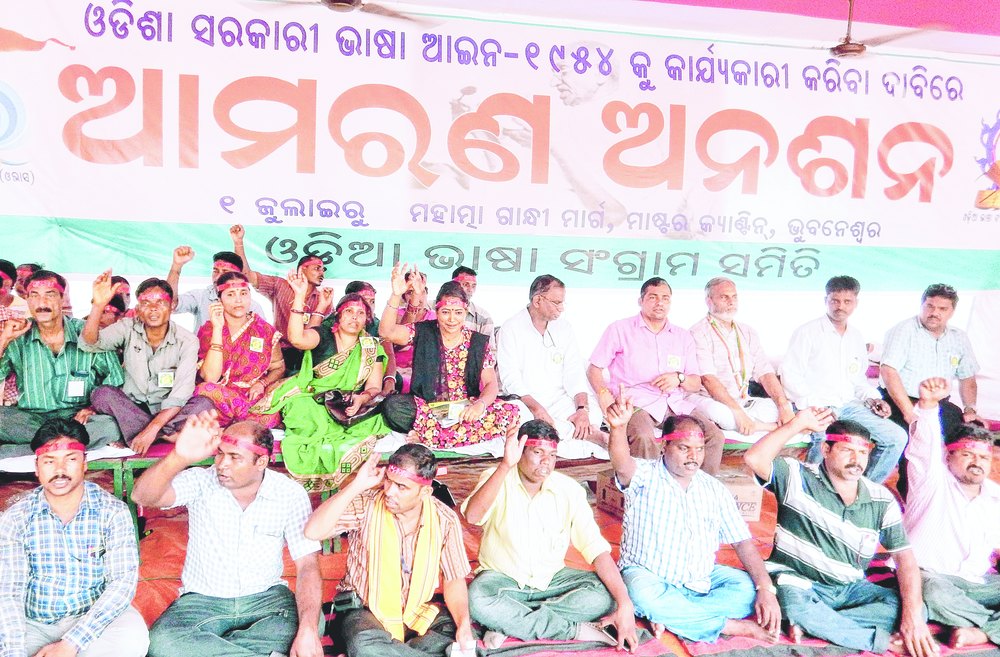
Bhubaneswar, July 6: Activists of the Odia Bhasa Sangram Samiti today threatened to stage protests in districts and blocks from July 9.
The protests are against the state government's failure to ensure the use of Odia language in official work. The organisation wants the state to adopt the Language Act, 1954, which seeks official language status for Odia.
Several members of the organisation have been on a fast-unto-death on the Mahatma Gandhi Marg for the past five days. They have been drawing support from leaders cutting across party lines. Yesterday, associations of teachers and university professors of the state had extended their support to the samiti.
Debiprasanna Pattanayak, a noted linguist and founding director of the Mysore-based Central Institute of Indian Languages, said: "When Nabakrushna Choudhuri was the chief minister in 1954, the state government had passed the Language Act to use Odia as official language, but sadly it was never implemented."
Interestingly, Odia became the sixth classical language on March 30, 2014, after Tamil, Kannada, Telugu, Sanskrit and Malayalam. Pattanayak had played a major role in documenting Odia's claim to the status of a classical language.
Samiti convener Sankarshan Parida said: "According to the Article 345 of the Constitution, it is wrong on the part of the state government not to use Odia as the state's official language after having adopted a Language Act. We are also stressing on issues such as employment of Odia teachers in schools and teaching of Odia as a subject up to Class XII."
Parida also said Odia language education should be made compulsory in all centrally sponsored schools and educational institutions in the state and all examinations pertaining to employment should be in Odia as well.
"According to the act, the state government has given orders to have some revenue and court works done in the local language, but there was no action against the violators," said co-convener of the organisation Subrat Prusty.
"The government in 1995 had asked English medium schools to make Odia compulsory, but there is hardly any follow up on this," said Gajanan Mishra, another co-convener of the organisation.
The Union Public Service Commission allows students to write papers in any of the 22 languages listed under the 8th Schedule. "This is not only anti-constitutional, but also violates a Orissa High Court order," said Mishra.

